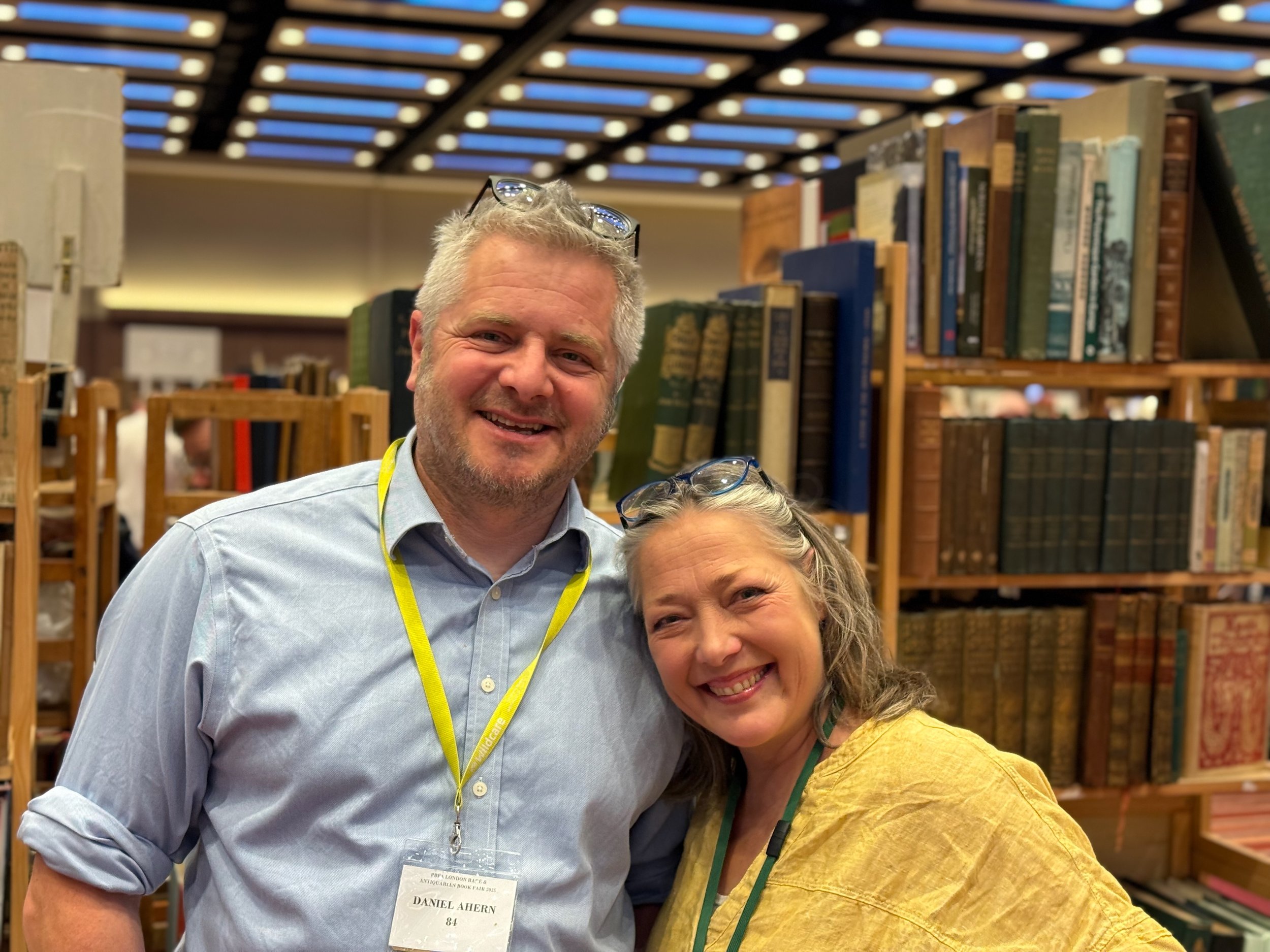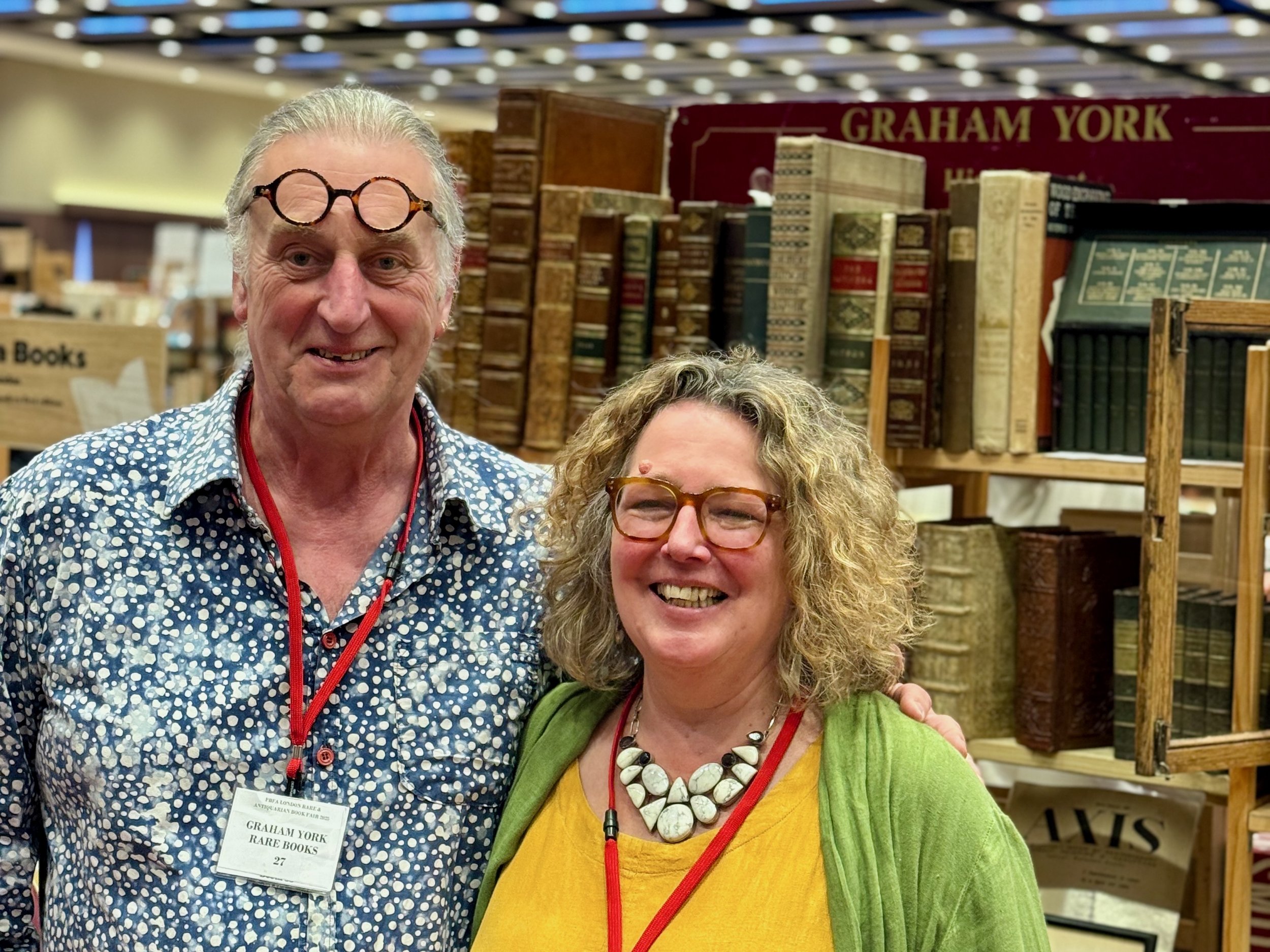What’s it worth? What expert booksellers say
When it comes to second-hand and antiquarian books, one of the most common — and complicated — questions is: how do you know what a book is really worth?
Valuing books isn’t always straightforward. It depends not just on age or appearance, but on a combination of condition, rarity, subject matter, author reputation, and demand. And while the internet has made research easier, it hasn’t replaced the need for expertise, experience — or conversation.
We asked experienced booksellers to explain how they approach the question of value in today’s market.
Dan Ahern — Daniel Ahern Books
“It’s partly experience. You get a feel for which authors or subjects are especially collectable and whose books command a higher price.
“If it’s something antiquarian, and you haven’t seen it before, you’ll look it up on online databases like ABEBooks, Biblio, Bookscouter. You might also speak to your friendly PBFA mate who’s been doing this for 30 years longer and ask for a steer.”
For commoner books, eBay gives you a decent indication of price. You check what’s listed — what’s the top end, what’s the bottom, and where do you want to position yourself?”
Sean and Niall — Endpaper Books
Sean: “There are a number of aspects. You have the financial worth of a book — but there’s also the aesthetic or personal worth. People have their own stories and their own connections to books — and sometimes that’s what determines what a book is really worth. Books also have peaks and troughs. An author’s birthday or death can suddenly increase demand. It’s about interest and cultural relevance — what people are paying attention to in that moment.”
Niall: “Valuing a signed book in particular can be a little more difficult. A signature offers a unique and tangible connection to the author - you can check going rates and recent auction prices, but if a buyer really wants it, it’s worth whatever they’re willing to pay. It can be a very emotive thing.’’
Michael Kemp — Michael S Kemp Bookseller
“Valuing a book is a mix of experience, instinct, research — and, if all else fails, a bit of guesswork.
For more common material, it’s fairly straightforward to see what other people are asking. That’s not the same as knowing what a book is worth, of course, but it gives you a benchmark.
The harder part is finding out what someone has actually paid for a comparable copy — especially when dealing with the more unusual or rare. That’s where time comes in. You need to watch auctions, study catalogues, and pay attention to other dealers’ stock. The more time you spend looking, comparing and learning, the more accurate your sense of value becomes.”
Graham York — Graham York Rare Books
“There’s no hard and fast rule — it’s a question of experience. You need to understand the book itself, the type of book, the subject, the author, the condition, and how rare it is on the market.
“These days, the internet makes it easy to see what other copies are being offered for, sometimes all over the world. But that information has to be read with care — if there are 40 copies listed, that tells you something. If there are none, that tells you even more.
“One of the best ways to build a sense of value is by visiting book fairs. Even at a small provincial fair, you might have 25 exhibitors, each bringing their best 100 books — that’s 2,500 carefully chosen, priced examples. And every single bookseller there is usually more than happy to talk. The learning you get just by browsing, asking questions, and seeing pricing first-hand is hard to beat.”
What’s the answer?
So... what’s it really worth? The short answer: it depends.
Valuing books is as much about knowledge and research as it is about instinct, timing and personal connection. A price tag might reflect scarcity, condition or cultural moment — but it can also be shaped by sentiment, nostalgia or the thrill of discovery.
That’s why book fairs remain one of the best places to explore value. They offer not only thousands of handpicked books, but access to the people who know and love them — and who are usually more than happy to share what they’ve learned.
Whether you're an experienced collector or just starting out, there's one thing every expert agrees on: the more you look, ask and handle, the better your understanding becomes. So come along, strike up a conversation, and don’t be afraid to ask the big question.
You might just find the answer is more interesting than you expected.
Our next fair: Bath Book Fair
When: Friday 27 June (12pm–6pm) & Saturday 28 June (10am–4pm)
Where: Bath Pavilion, North Parade Road, Bathwick, Bath, BA2 4EU
Entry: Free entry with this ticket or £2 on the door





